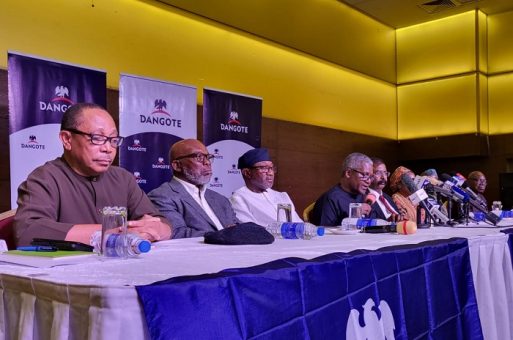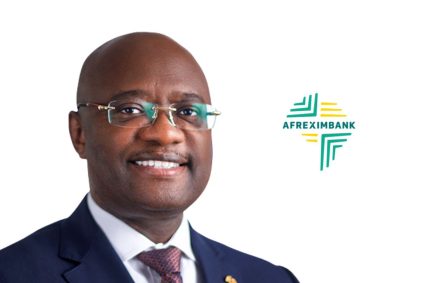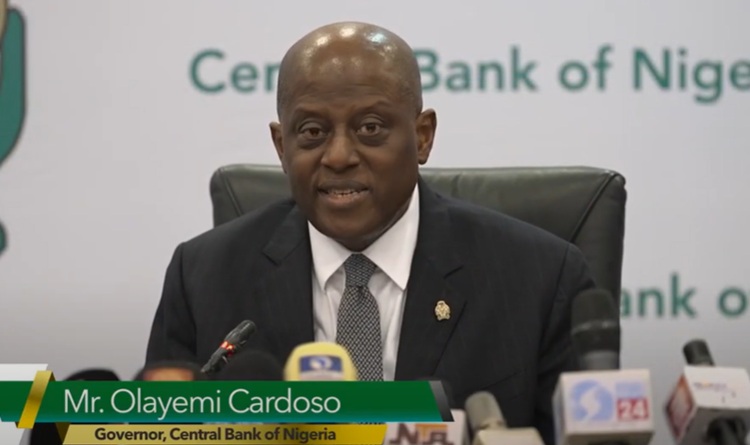Mr. Taiwo Oyedele, chairman of the Presidential Fiscal Policy and Tax Reforms Committee, has forecast that Nigerian states may collect over N4 trillion yearly beginning in 2026 following the implementation of revised Value Added Tax regulations.
During Tuesday’s presentation of the BudgIT State of States 2025 Report in Abuja, where he delivered the primary address, Oyedele shared this projection.
The occasion also commemorated the program’s tenth anniversary.
“With VAT reforms kicking in from 2026, states’ share will rise to 55 per cent. That could amount to over N4 tn in 2026. The question is: will this money be spent, or will it be invested?” he said.
READ ALSO: Atiku toTinubu: You’re not only incompetent, you’re insensitive *Condemns ‘private’ Paris trip
The fiscal reform specialist observed that despite recent policy changes more than doubling Federation Account Allocation Committee distributions—from N5.4 trillion in 2023 to N11.4 trillion in 2024—most citizens have experienced minimal tangible benefits.
He noted that while government revenues have increased substantially, household purchasing power continues declining.
“States are receiving more money than ever before. But there is a paradox: while governments have more naira, ordinary Nigerians have less disposable income in their pockets,” he said, encouraging state administrators to direct additional funds toward initiatives that meaningfully enhance quality of life.
The BudgIT analysis revealed that twenty-one states continue depending on federal transfers for more than 70 percent of their income, which Oyedele characterized as concerning.
Nevertheless, he referenced positive developments, citing Enugu’s 381 percent increase in internally generated revenue alongside Bayelsa’s 174 percent improvement.
According to him, upcoming tax legislation—which assigns complete electronic money transfer levy proceeds to states and removes taxation from state government bonds—will help lower borrowing expenses and generate financial flexibility.
“This is a unique opportunity for states to build resilience, close existing tax gaps, and invest in infrastructure,” he stressed.
His remarks also addressed the disconnect between expenditure levels and actual results. Oyedele recognized that capital spending had exceeded recurrent costs for the first time in years.
However, he cautioned that execution in essential sectors remained inadequate.
“States implemented only two-thirds of their education budgets, spending less than N7,000 per citizen. In health, implementation was even lower, at just N3,500 per citizen,” he observed.
Regarding indebtedness, he mentioned a N2 trillion decrease in domestic liabilities and a $200 million reduction in external borrowing, with thirty-one states reducing their domestic debt levels.
Despite this, states maintain outstanding arrears exceeding N1.2 trillion owed to retirees, suppliers, and employees.
“Borrowing is not the problem; unproductive application of debt is,” he cautioned.
The 2025 performance rankings placed Anambra first, succeeded by Lagos, Kwara, Abia, and Edo. Cross River experienced a sharp decline from fifth position in 2024 to twenty-ninth in 2025, prompting questions about administrative decisions.
Oyedele encouraged state leadership to capitalize on forthcoming reforms to progress beyond mere survival toward achieving widespread economic well-being.
Additionally, Dr. Muhammad Abdullahi, the Central Bank of Nigeria’s Deputy Governor overseeing Economic Policy, urged states to establish fiscal responsibility and openness as revenue increases under current reforms.
He characterized the BudgIT assessment as an annual benchmark that has “distilled hard fiscal truths, benchmarked performance, and re-centred conversations on capital investment, social outcomes, and fiscal credibility.”
He acknowledged that while 2024 and 2025 reforms expanded revenues and elevated capital expenditure above recurring costs, states must avoid reverting to overhead-dominated budgets.
“The challenge is to lock in this fiscal discipline permanently,” he said.
The CBN official recommended that states digitize revenue collection systems, complete Treasury Single Account implementation, and enhance capital planning processes.
He further advocated for improved execution rates in education and health allocations, demanding implementation exceed 80 percent.
Abdullahi cautioned that subnational entities face significant foreign currency vulnerability. He revealed that the CBN is creating financial instruments to assist them with hedging exposure and revenue optimization.
Examining the wider economic landscape, Abdullahi explained that Nigeria inherited substantial imbalances, including multiple exchange rates, excessive deficit financing through Ways and Means, and depleting reserves.
The central bank’s strategy involved returning to conventional monetary policy, normalizing currency markets, and rebuilding confidence.
He concluded that states prioritizing discipline and capital investment over simply depending on increased revenues would accomplish lasting transformation.
Representing the Nigerian Governors’ Forum Director-General, Dr. Abdulateef Shittu, Razaq Fatai—Head of Economic Intelligence—described the State of States report as instrumental in guiding administration and advancing fiscal responsibility nationwide.
He clarified that the NGF has functioned as a technical collaborator in developing the report throughout the past decade, ensuring governors utilize findings for enhanced policy decisions.
“The essence of State of States is to help guide governance and ensure that governors at different levels take the information provided and make sure it reaches their people,” he said.
Fatai mentioned that programs like the State Fiscal Transparency, Accountability and Sustainability initiative have reinforced budget reliability and debt openness, while the ongoing State Action on Business Enabling Reforms program encourages states to enhance business conditions.
He stated that the NGF will maintain its role facilitating collaborative learning and cooperation to establish transparency and accountability at subnational levels.
BudgIT Co-founder and Global Director Oluseun Onigbinde earlier remarked that the State of States report functions as a reflection of subnational government decisions.
Onigbinde observed that what started as an effort to track public spending has developed into an accountability instrument embraced by both administrators and citizens.
“This report began with a simple belief, that every kobo meant for citizens should be traceable, justified, and used to improve lives,” he said.
He noted that transparency has become advantageous among states, with more governors publishing budgets and citizens utilizing data for accountability demands.
Nevertheless, Onigbinde cautioned that Nigeria faces critical challenges, with increasing inflation, mounting debt, and excessive dependence on federal allocations preventing many states from developing sustainable local economies.
He encouraged states to prioritize education, healthcare, and infrastructure while using transparency to build public confidence and attract investment.

 News3 weeks ago
News3 weeks ago
 Features4 weeks ago
Features4 weeks ago
 News3 days ago
News3 days ago
 Features5 days ago
Features5 days ago
 News2 weeks ago
News2 weeks ago
 News4 weeks ago
News4 weeks ago
 Uncategorized2 weeks ago
Uncategorized2 weeks ago
 Entertainment2 weeks ago
Entertainment2 weeks ago


















